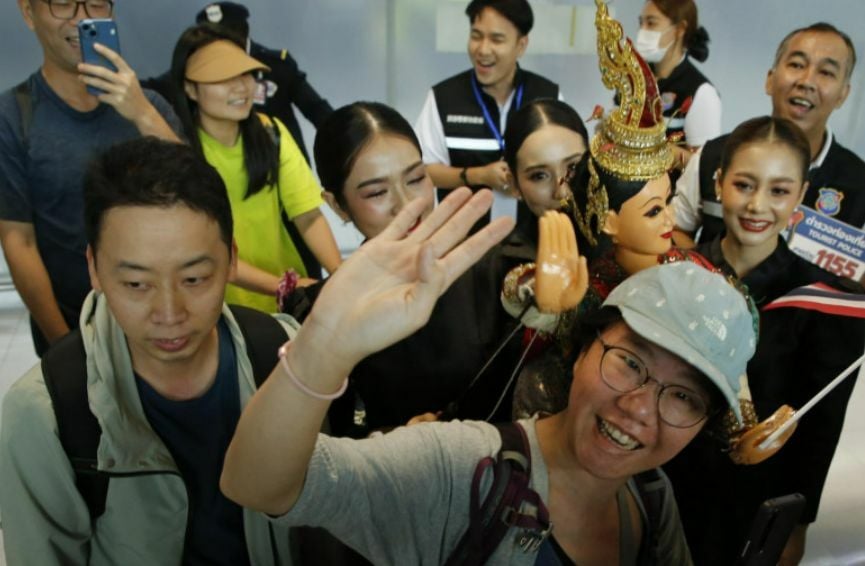Chinese tourists still prefer Thailand despite visa exemptions

Despite increasing competition from countries offering visa exemptions to Chinese tourists, Thailand’s tourism industry remains secure due to its dominant market share and increased expenditure per trip, according to the country’s Tourism and Sports Ministry. Countries such as Kazakhstan, Maldives and Sri Lanka have started offering visa exemptions for Chinese tourists, yet Thailand continues to be the preferred destination, said Sudawan Wangsuphakijkosol, the Tourism and Sports Minister.
Thailand’s appeal lies in its varied tourism options, which include nature, historical sites and beaches. Despite a slower-than-anticipated travel demand, the visa-free policy is anticipated to generate momentum into the following year with growing flight traffic. The ministry intends to focus on establishing new flights connecting second-tier Chinese cities with Thailand’s regional airports, including Krabi, Chiang Mai and Phuket.
Thapanee Kiatphaibool, the governor of the Tourism Authority of Thailand (TAT), revealed that despite a downgraded target of four million Chinese tourist arrivals this year, expenditure per trip has increased from levels seen before the pandemic, reaching between 58,000 and 60,000 baht. One of the significant challenges in the Chinese market is the domestic travel incentives offered by Beijing to stimulate its sluggish economy.
Nonglux Yooyendee, the director of TAT’s Shanghai office, disclosed plans to promote more direct chartered flights during the holiday season and Chinese New Year to beach provinces such as Krabi. The Shanghai office reported the highest share in 2019, with four million visitors out of a total of ten million Chinese arrivals. The city serves as a significant connection hub for China to the world, reported Bangkok Post.
Currently, there are about 40,000 available seats per week between Thailand and Shanghai, as well as other nearby eastern Chinese cities. Potential new market segments include young millennials who prefer to stay in four and five-star hotels and seek unique experiences beyond shopping.
In a move aimed at stimulating the Chinese market and ensuring tourism confidence, the TAT signed a letter of intent with Alibaba Group’s travel platform, Fliggy. Plans between TAT and Fliggy include introducing hidden gem destinations to the Chinese market and offering promotions during the holiday seasons.
Fliggy also plans to launch a 24-hour online service centre for Chinese tourists to ensure safe travel in Thailand. The platform, which caters to more than 440 million users and offers 10,000 Thai tourism products, recently ran promotions such as the 11.11 travel campaigns and a Similan Island marketing campaign.






